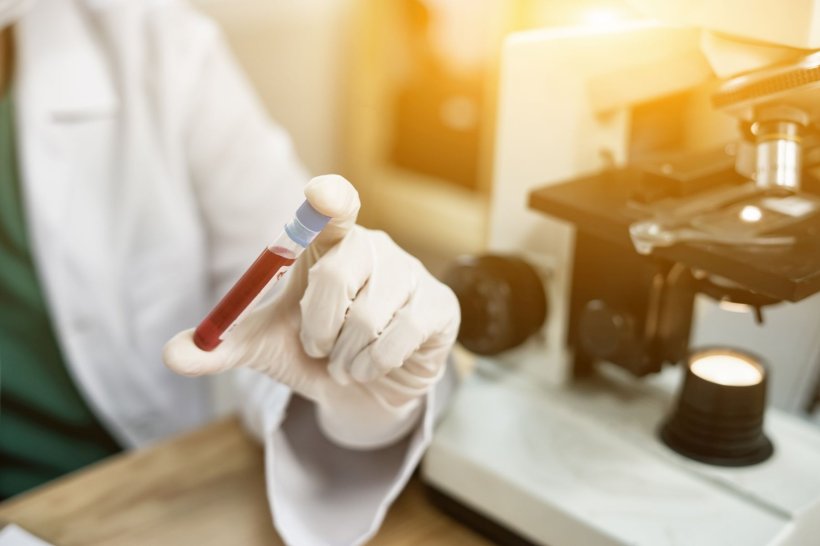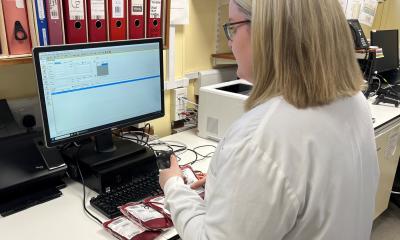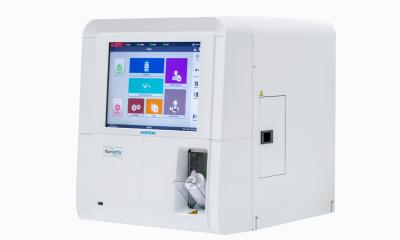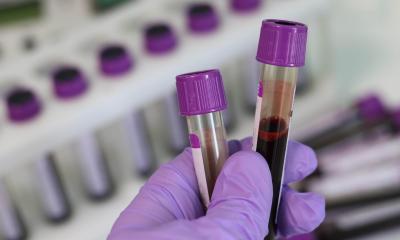
Image source: Adobe Stock/Have a nice day
News • HIV & hepatitis detection
HIV, hepatitis B and hepatitis C can be detected from a single drop of blood, study shows
Data on a test that can detect HIV, hepatitis B and hepatitis C from a single drop of blood is being presented at this year's European Congress of Clinical Microbiology & Infectious Diseases (ECCMID) in Copenhagen, Denmark, (April 15–18).
More information can be found on the congress website.
More than one million people a year are killed by hepatitis B or hepatitis C. 650,000 people die from HIV-related causes annually and 1.5 million acquire HIV.
The World Health Organization has made the elimination of all three viruses by 2030 one of its global health strategies but new tests are necessary if case numbers are to be reduced.
The most common test for hepatitis B, hepatitis C and HIV involves taking a blood sample from a vein using a needle. While this method works extremely well, there is a potentially large reservoir of the three conditions in places where this method is not suitable. This could be prisons, drug rehabilitation centers and homeless shelters, where the taking of venous blood samples isn't always suitable or in countries in which the shipping and refrigerated storage of blood samples can be challenging. Alternatives include dried blood spot tests, in which a single spot of blood is tested for nucleic acid from the three viruses.
Mr. Stephen Nilsson-Møller and colleagues at the Department of Clinical Microbiology, Copenhagen University Hospital, Denmark validated (assessed) one such test. To do the test, the individual's finger is pricked and a few spots of blood collected on filter paper and allowed to dry. The Hologic Panther System—testing equipment widely found in public health laboratories—then uses a technique called transcription mediated amplification to analyze one of the blood spots for genetic material from the three viruses.
The analysis is designed to be, and is normally, run on liquid samples of plasma or serum—not the dried samples used here. Twenty samples with known amounts of HIV, hepatitis B and hepatitis C were analyzed via the dried blood spot method (60 in total) and the viruses were detected in all of the samples. The plasma was also diluted to determine the lower limit of detection. This showed that it was possible to detect the viruses at levels that are much lower than are normally found in untreated patients.
Mr. Nilsson-Møller says, "We've shown that using existing hospital equipment, it is possible to detect HIV, hepatitis B and hepatitis C from a single drop of blood."
"The dried blood spot test is ideal for places where you don't want to use a needle for safety reasons or where it is less practical. This includes prisons, drug rehabilitation centers and homeless shelters."
"It is also suitable for developing countries or places where you run the risk of a blood sample being ruined before it is transferred to a laboratory that can analyze it."
"Blood samples need to be analyzed within six hours when kept at room temperature, while dried blood spots can last for nine months without refrigeration."
Source: European Society of Clinical Microbiology and Infectious Diseases
17.04.2023





